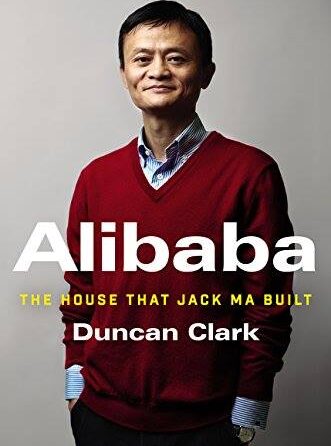
Jon Stewart’s quote, “The communists just beat us at capitalism!” is not an exaggeration, especially when considering the example of Jack Ma, who built the Amazon of China, Alibaba. Although Alibaba has not penetrated India as deeply as Amazon or Walmart, Jack Ma certainly has. I often receive motivational quotes and videos of Jack Ma through various social media platforms. My favorite quotes from Jack are, “Nobody knows the future. You can only create the future.” and “Today is hard, tomorrow will be worse, but the day after tomorrow will be sunshine. However, the majority of people will die tomorrow night.”
“Alibaba: The House That Jack Ma Built” by Duncan Clark is one of the best books I’ve read. Jack Ma is an overachiever who has accomplished something extraordinary. It’s easy to start an e-commerce business in a democratic country like the USA, which has extensive internet penetration and widespread use of credit cards. Moreover, it shouldn’t be too difficult to raise funds in a consumer market-driven country like the USA. However, developing an e-commerce portal in a communist country, with heavily censored internet and a lack of credit card usage, is a formidable task. Who would invest or fund an e-commerce business under such hostile conditions? Yet, Jack Ma made it happen. In the author’s words, “More than 10 percent of retail purchases in China are made online, a figure that surpasses the 7 percent in the United States. Jack has likened e-commerce in the United States to a ‘dessert,’ whereas in China, it is the ‘main course.'”
From the beginning, Jack asserts that Alibaba’s success was serendipitous. He says, “Alibaba might as well be known as ‘one thousand and one mistakes.’ We succeeded because we didn’t have any money, we didn’t have any technology, and we didn’t have a plan.” Yet, his enterprising nature during his childhood hints that Jack was destined for greatness. He worked as a local tour guide during his elementary school years and later landed a government job because of his language skills—a quintessential rags-to-riches story.
Duncan Clark, who has worked with Jack Ma, vividly recounts Jack’s humble beginnings and his exponential growth amidst the unique challenges of China. He interjects his own insights throughout the narrative. The book is peppered with Jack’s quotes, each a gem worth underlining, text-marking, and revisiting several times. Jack succinctly encapsulates Alibaba’s philosophy: “Customers first, employees second, and shareholders third.” He reveals the secret to success as the “Six Veins” of Alibaba’s “Spirit Sword,” which are “customer first, teamwork, embrace change, integrity, passion, and commitment.”
His slogan for prevailing in any situation is ‘Be the last man standing.’ “Even on my knees, I had to be the last man collapsing. I always believed at that time that if I were having difficulties, someone else was facing even greater challenges; if I were having a hard time, my opponents were having an even harder time. Those who can withstand and manage will win eventually.”
The takeaway message for entrepreneurs hoping to emulate Jack Ma’s success is, “I have three principles for doing things: first, they must be one hundred percent legal; second, they must be one hundred percent transparent; and third, they must allow the company to develop sustainably and healthily.”
“Alibaba: The House That Jack Ma Built” is a treasured part of my Kindle library.
Prof. Dr. Prahlada N. B
8 January 2019
Chitradurga.

















Leave a reply